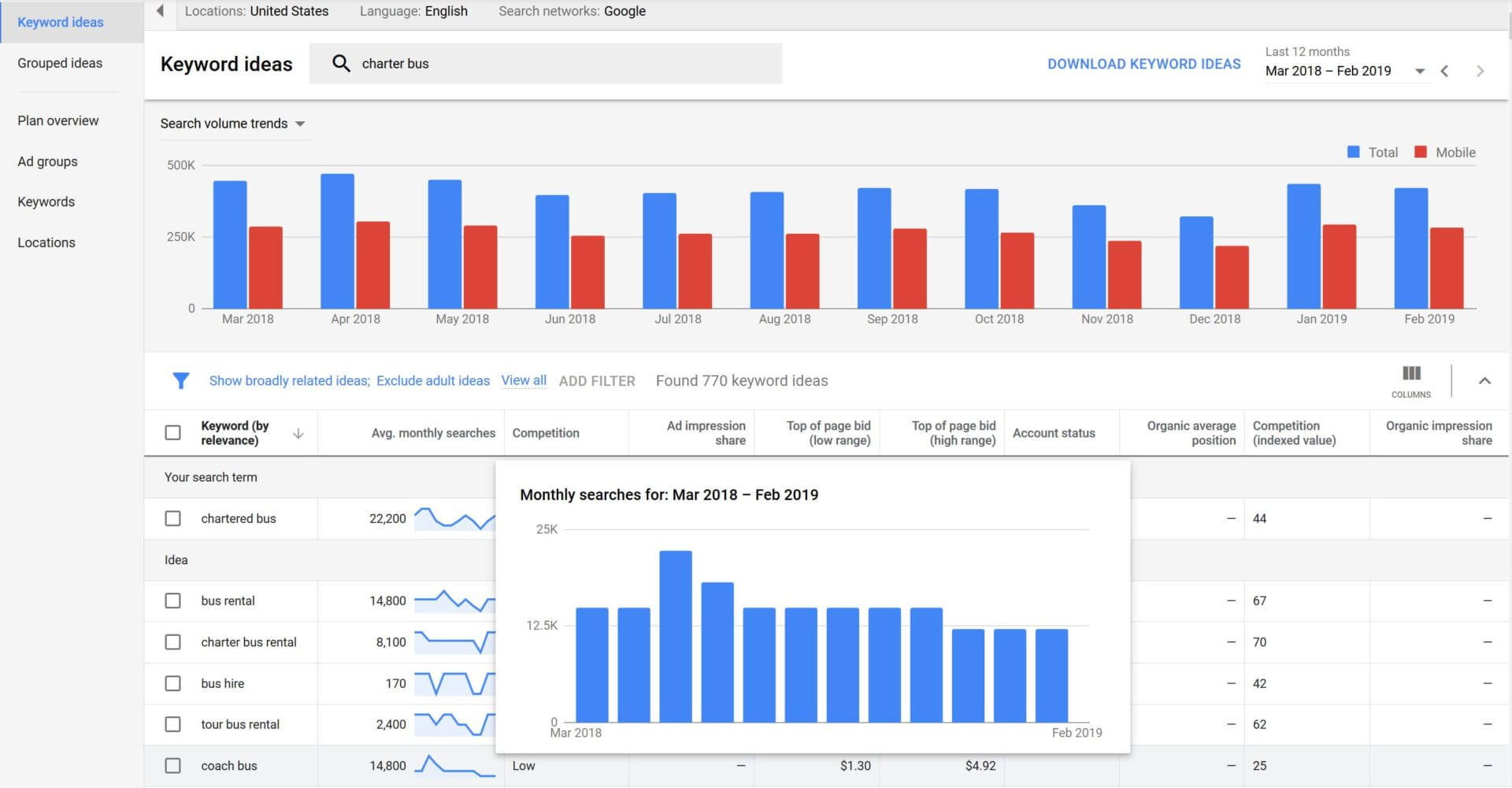Even if you’re completely new to SEO, you’ve come across the concept of keyword research.
When choosing search queries to optimize your website for, consider two important metrics for keyword research:
- The keyword search volume
- The level of competition for a given keyword.
Most keyword tools are decent at determining competition levels for a keyword. But they vary in their ability to provide search volume data.
This quick guide will familiarize you with the key aspects of keyword search volume:
- What it is;
- Why you should pay attention to this metric;
- How to choose the best source of keyword search volume data.
Armed with this knowledge, you’ll be able to apply this metric to your SEO and marketing efforts. All to create a smarter, more data-driven strategy for your online success.
Keyword Search Volume: What is it?
Keyword search volume measures how often users search for a specific query.
It’s best to evaluate this metric monthly, as it is related to site traffic, which is measured on a monthly basis.
Why do you need keyword search volume statistics?
Optimizing for the right query forms the basis of your online strategy, as 93% of online travel starts with a search.
While you can experiment with different search volume data applications, the most popular use cases are:
Prioritize keyword optimization as search volume statistics uncover low-hanging keywords with high search volume and low competition.
To pinpoint seasonality in search. If traffic fell to a page dedicated to New Year gift ideas in September, it would not be surprising to see the highest search volumes for the keyword “New Year’s Gift Ideas” occurring in December. But not everything is so obvious. You may expect to see seasonality in your target keyword. But it can happen, and it’s best to be aware of it. Whether you’re just doing search engine optimization or preparing a marketing campaign.
There are some other unorthodox ways to use keyword search volume data:
- Some online companies, especially in the e-commerce industry, use it to gauge user demand.
- Some use keyword search statistics to shape their product strategy based on demand estimates.
How to Choose the Best Keyword Search Volume Data Source
Now that we’ve covered the basics of keyword search volumes. And how to use them, it’s time to reveal where you can find these statistics.
As with most things SEO and digital marketing , you have Google tools and third party tools. Google is usually always free, while the latter charges for data access.
This may seem obvious. But don’t jump to the conclusion that you can get away with statistics that come from Google itself.
Google’s own keyword research tools
This subtitle is not that accurate since Google doesn’t offer any keyword research tools per se.
However, with some workaround you can get some data.
When looking for solutions that provide insight into keyword statistics, Google Search Console is among the recommendations.
This is a great tool that should be accessed on a regular basis. But when it comes to keyword search volume data, it won’t work.
First, Google Search Console only shows keyword statistics for search queries that you’ve already covered. This way, you can’t see any data for keywords that your site isn’t ranking for, which is a problem since the main purpose of keyword research is to actually discover new keywords that you should integrate into your SEO and marketing strategies .
Then you won’t actually see any keyword search volume data there. Instead, you see impressions that only reflect how many people Googling a particular search term might have seen your link. And keeping in mind the definition of keyword search volume, you can tell that they are not the same thing.
What about Google Keyword Planner ?

This is a tool for advertisers, which means it should contain more useful data. And this is true, only the exact search volume numbers appear when you actually launch an advertising campaign.
The tool, let’s call it the free version—where you’re just doing some background research for advertising purposes. But haven’t actually committed any advertising budget yet—only returns keyword search volume ranges.
This means you can only see real search volume statistics if you’re willing to shell out a few dollars. This can be the most expensive unless you’re just in an industry with a few dozen targeted keywords.
Your keyword research, which consists of analyzing 100-500 search queries will be expensive and require a lot of effort.
Which keyword research tool provides the most accurate search volume statistics?
This meditation study looked at keyword search volume data in SEMrush , Ahrefs , Serpstat. They are the industry’s leading keyword research tools.
They compared the statistics of these tools with the number of impressions in Google Search Console. How accurate is the comparison? As this methodology shows, in some cases, GSC impression data may reflect search volume. And the study selected keywords that match those cases. This methodological post develops this approach.
They also looked at the free version of Google Keyword Planner to see if even the ranges it reflects are more accurate than any external tools.
Now let’s look at the key findings that should help you understand which tool provides the most accurate search volume data.
Summarizing:
Hopefully, you’re well-equipped to enter the world of keyword research. You know everything there is to know about search volumes, use cases for them. And even the best tools that display the most accurate data.
Thus, there are only a few hips to consider when interpreting search volume statistics:
- Consider the nature of your industry. If you’re in business with a large audience, keyword search volumes will be higher. But if you’re working in something niche, don’t be put off by fewer requests.
- When making keyword decisions, don’t consider search volume alone. The level of competition is important, as keywords with high search volumes tend to be extremely competitive. So all your optimization efforts can come to naught if large sites are already ranking high for that search query.
Use smart SEO and marketing strategies, even when it comes to keyword optimization. If you have a relatively new site or don’t have much traffic to work with yet, always start with low-to-medium value keywords. Get some traffic, build up some site authority, and only then move on to targeting higher volume search queries.


